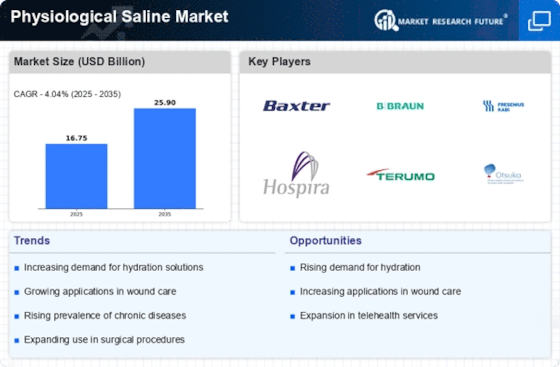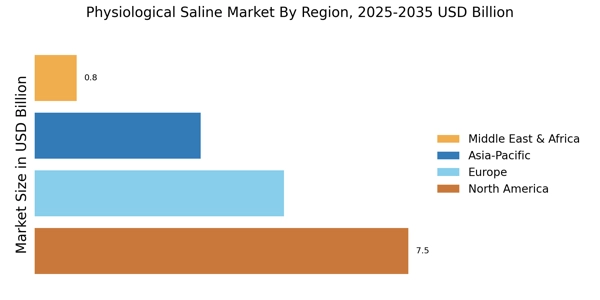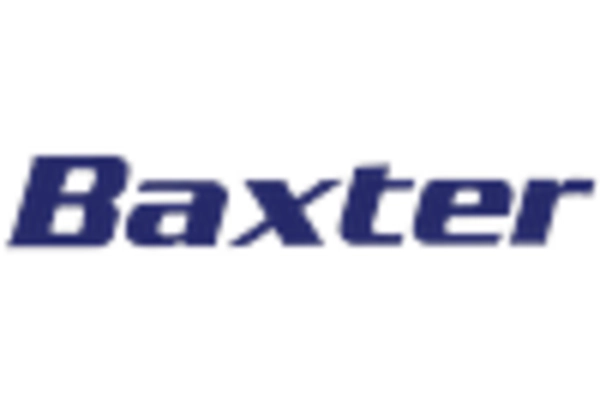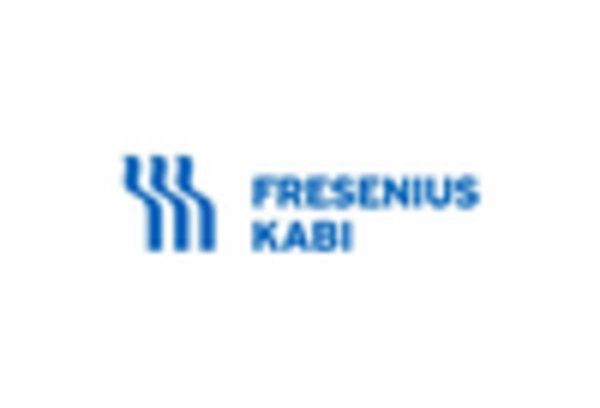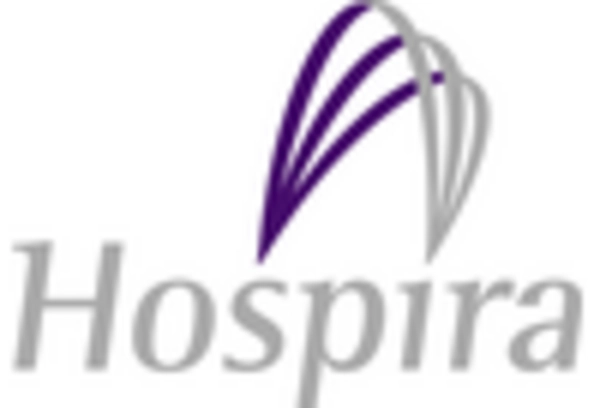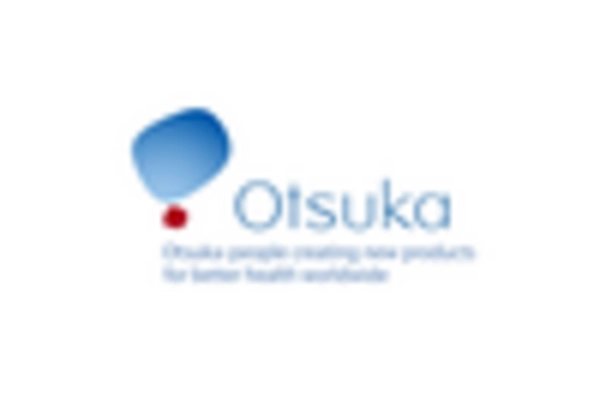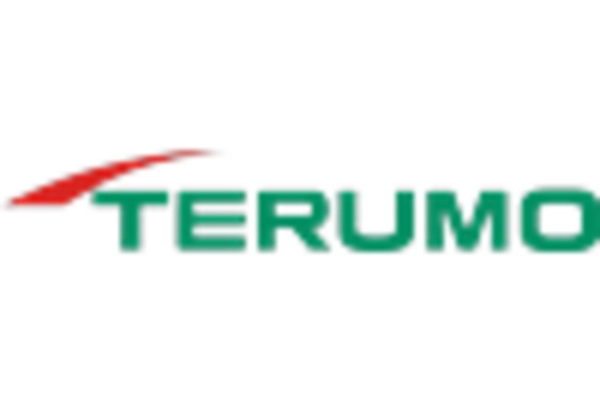Advancements in Medical Technology
Technological advancements in medical devices and treatment methodologies are poised to influence the Physiological Saline Market positively. Innovations in infusion systems and delivery mechanisms enhance the efficiency and safety of saline administration. As healthcare providers adopt these advanced technologies, the demand for high-quality physiological saline solutions is likely to increase. Furthermore, the integration of smart technologies in healthcare settings may lead to more precise dosing and monitoring, thereby improving patient outcomes. This trend indicates a potential growth trajectory for the Physiological Saline Market as it aligns with the evolving landscape of medical technology.
Rising Awareness of Fluid Management
There is a growing awareness among healthcare professionals regarding the importance of effective fluid management in patient care, which appears to be a key driver for the Physiological Saline Market. Proper hydration is essential for maintaining electrolyte balance and supporting various physiological functions. As medical education emphasizes the significance of fluid therapy, the demand for physiological saline solutions is likely to increase. This heightened awareness may lead to more frequent use of saline in clinical settings, thereby contributing to the expansion of the Physiological Saline Market as healthcare providers prioritize optimal patient management.
Expansion of Healthcare Infrastructure
The ongoing expansion of healthcare infrastructure in various regions is likely to bolster the Physiological Saline Market. As hospitals and clinics enhance their facilities and services, the demand for essential medical supplies, including physiological saline, is expected to rise. Recent statistics indicate that healthcare expenditure is increasing, with investments directed towards improving patient care and treatment options. This expansion not only enhances access to healthcare but also drives the need for reliable saline solutions in various medical procedures, thereby contributing to the growth of the Physiological Saline Market.
Regulatory Support for Quality Standards
Regulatory bodies are increasingly focusing on establishing stringent quality standards for medical products, including physiological saline solutions. This regulatory support is likely to enhance the credibility and safety of the Physiological Saline Market. Compliance with these standards not only ensures product efficacy but also fosters consumer trust in saline solutions. As manufacturers strive to meet these regulations, the overall quality of physiological saline products is expected to improve, potentially leading to increased market demand. This trend indicates a positive outlook for the Physiological Saline Market as it aligns with global health initiatives aimed at ensuring safe and effective medical treatments.
Increasing Prevalence of Chronic Diseases
The rising incidence of chronic diseases such as diabetes, cardiovascular disorders, and respiratory ailments appears to be a significant driver for the Physiological Saline Market. As healthcare providers increasingly rely on intravenous therapies for patient management, the demand for physiological saline solutions is likely to surge. According to recent data, the prevalence of chronic diseases is projected to increase, necessitating effective hydration and electrolyte balance in patients. This trend suggests that the Physiological Saline Market will experience substantial growth as healthcare systems adapt to the needs of an aging population and the associated rise in chronic health conditions.


